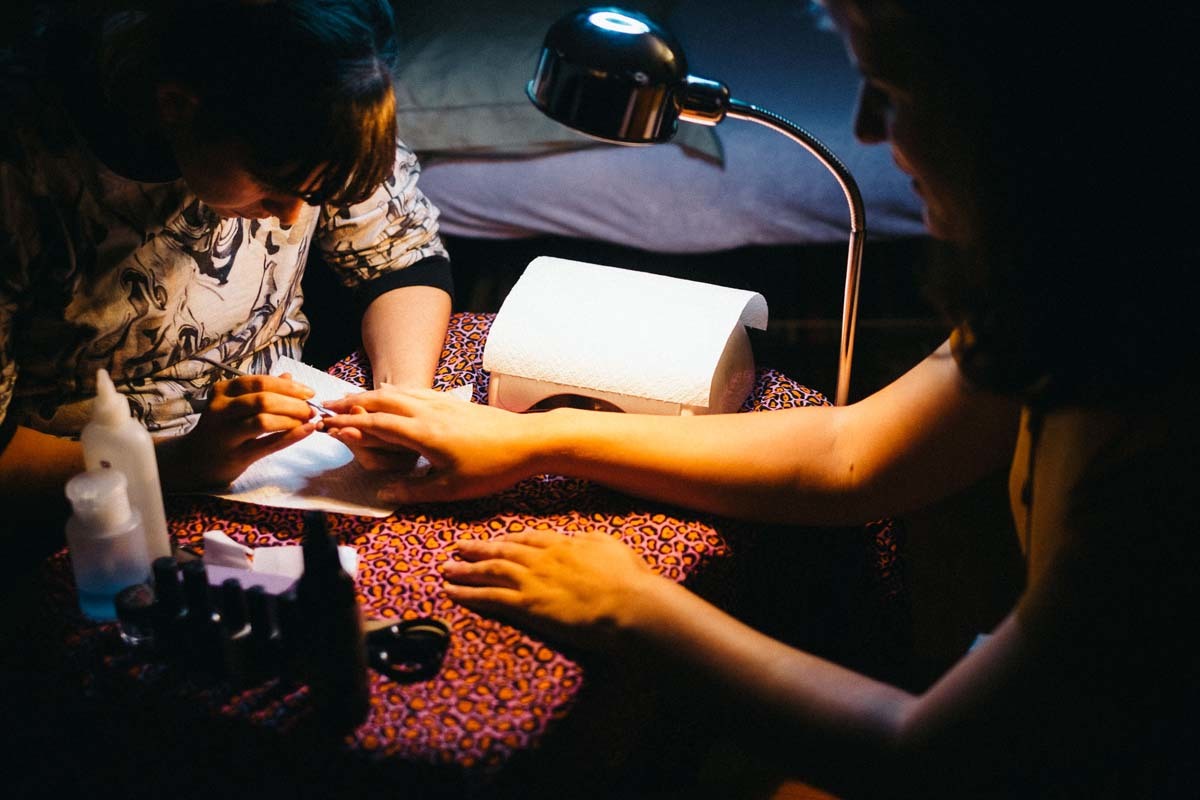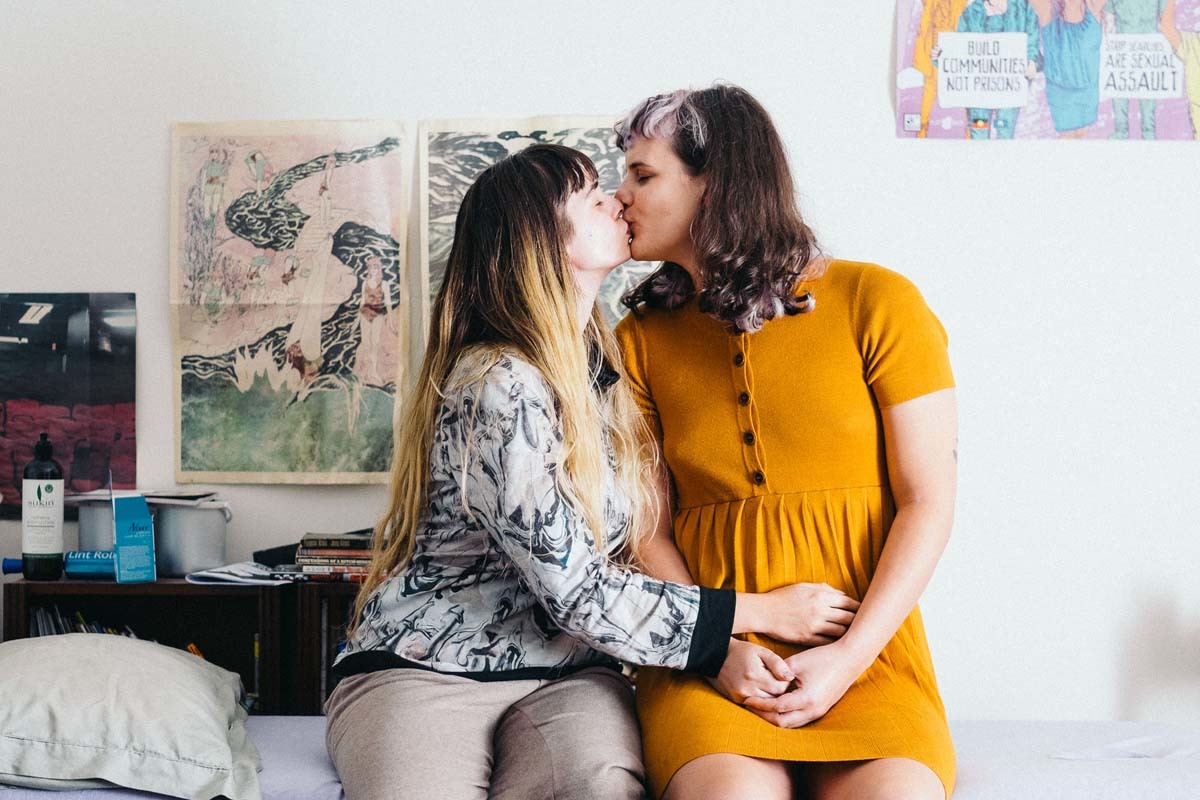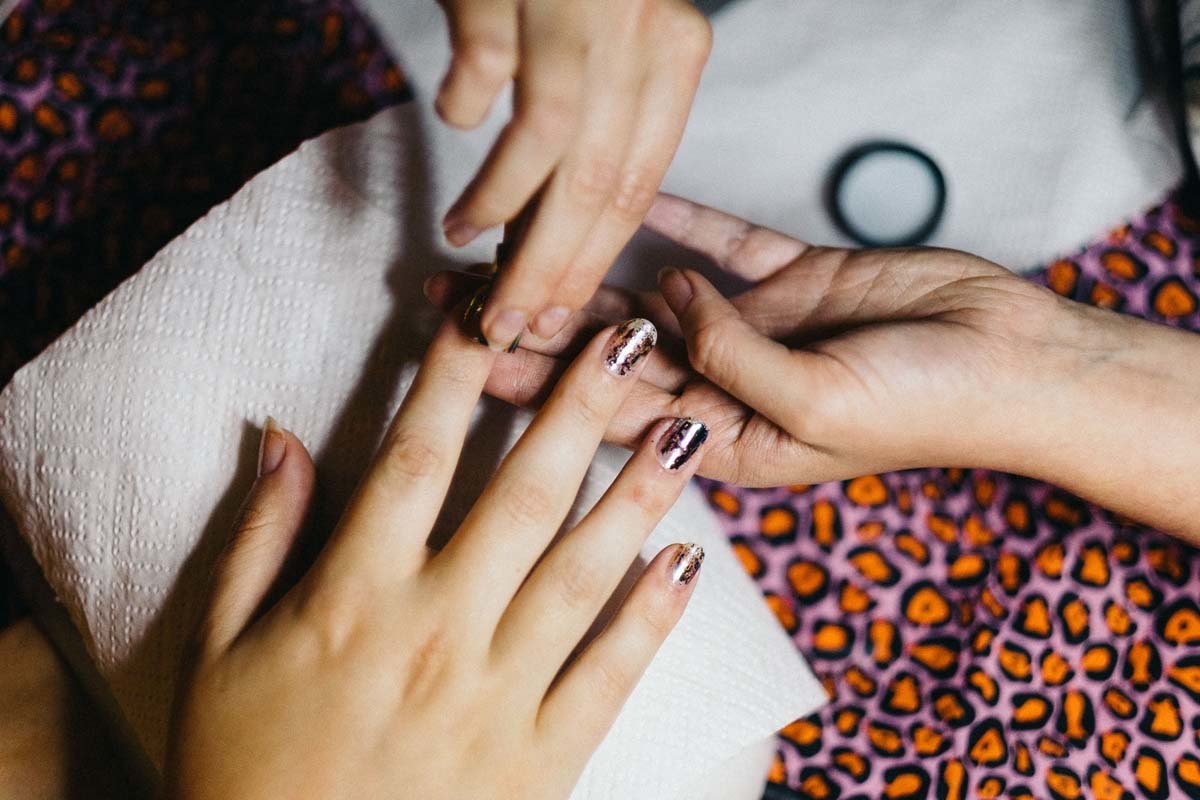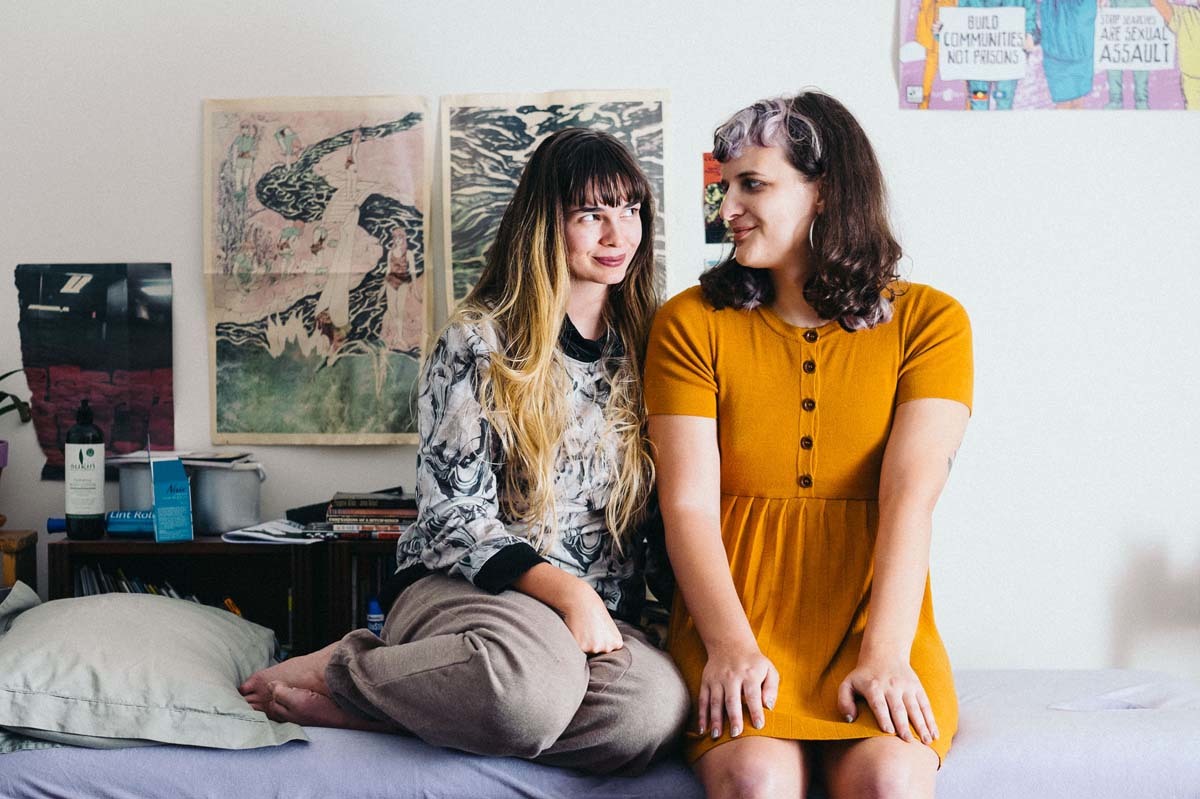Women have long held beauty salons as safe and inclusive spaces—havens of relaxation and luxury. But the reality for LGBTQ individuals can be incredibly different. In a world largely built on reinforcing aesthetic and gender expectations like glossy hair, manicured nails and hairlessness there’s little room to accommodate different experiences. Trans and queer customers regularly face microaggressions and blatant discrimination from salons. Sometimes their bodies are slyly criticised, other times their business is flatly refused.
After Ruby and Adelaide of Bachelorette Beauty Services saw these interactions play out in their own lives and the lives of their friends far too often they decided to do something about it. Adelaide was already studying beauty therapy, and wanted to work with partner Ruby in creating a space that welcomed all. Together, they made the salon they couldn’t find anywhere else. i-D spoke to them about the complicated business of beauty, and how when done right it can be an incredibly powerful and healing tool.
Why did you decided to start Bachelorette Beauty Services?
Ruby: Adelaide has been studying beauty for the past year and a half and both of us have had bad experiences going into beauty salons. So have a lot of our friends; it seems particularly queer and trans women have been made to feel really uncomfortable about their bodies. This was about trying to start a salon that was as accessible as we could make it.

It’s interesting because for something that’s consistently sold as an inclusive female space, salons are actually pretty problematic. When you were starting out, what did you specifically want to avoid?
Adelaide: I’ve noticed in my studies that criticising other people’s bodies is really ingrained in the industry. We’re told certain things are wrong and others are right. That’s not something I’m interested in doing, in general or in terms of beauty. It can be such a stab in the heart. I just want to help people feel nice about themselves and comfortable because that can be particularly hard for women, femmes and queers. My teacher said a really interesting thing today which I hadn’t thought of — beauty therapy is a form of therapy that isn’t necessarily emotional. Obviously I’ll have a yarn with people, but it’s part of physical care, being there in an intimate, non-sexual and comforting way.
You both obviously came into this with a really body positive point of view. Isn’t that difficult to maintain in an industry that is primarily focused on changing or “fixing” bodies?
Adelaide: I don’t think it’s necessarily about fixing. For a lot of people, feminizing services are things that make them feel more comfortable in themselves. For them, it can make work more accessible and the public more friendly. For a lot of people it just feels nice. I love having nice nails, I love having my lashes tinted. I don’t go for waxing or hair removal, but some people feel much better for it.
Ruby: People say, “Oh I have to do this for work, or I’m going away with family so I’m getting my legs waxed and this isn’t really what I want.”

I suppose if you’re a trans woman getting your nails done or having hair removed isn’t necessarily about relaxation, it’s something you might feel you have to do to, as you said, to make the public more friendly or accepting. Which is sad to consider in itself.
Adelaide: Yeah, say someone doesn’t necessarily want something done, at least we can create the nicest atmosphere for them. We can try make the experience like, not the worst.
Do many of your clients feel these are processes they have to partake in, rather than really wanting to?
Adelaide: Yeah sure. Some people might want to affirm their gender through waxing, nails or brows.
That could be a difficult thing to communicate in a traditional salon.
Ruby: There’s also this process in the beauty industry I’ve noticed where there’s this expectation to on-sell people. It’s like ‘so you’ll need to come back in six weeks to fix this again or you’ll be ugly again in this amount of time.’ We try avoid the idea of a transformation story.

What do you think of the way the current feminist wave has framed waxing: if you take part in this culture you’re bowing to a prescribed beauty stereotype?
Ruby: Those conversations can shut out a lot of marginalised women. It’s one thing for like a cis, straight white woman to not shave her legs but it’s another thing for a woman of colour or a trans woman. It means different realities basically. In some ways it’s a reconstruction of white beauty standards while attempting to critique them.
Another thing I want to talk about are your prices. You’ve clearly positioned them far below the usual.
Adelaide: I want to have things discounted heavily while I’m still learning, but always keep it accessible.
Ruby: We’ve also set up a fund for people to donate to for people who can’t afford services so we can provide them free. It’s about making this stuff accessible because I do believe it’s a form of therapy and not necessarily just a luxury for some people.
Do you feel the beauty industry has an issue with LGBTQ people we’re not addressing?
Adelaide: Yeah, a lot of it is more microaggressions towards trans girls. Salons will say things like, “oh you’re on medication, we can’t see you until you see you doctor” and then there’s like places that are straight up just like “no.”
Credits
Text Wendy Syfret
Photography Ben Thomson
